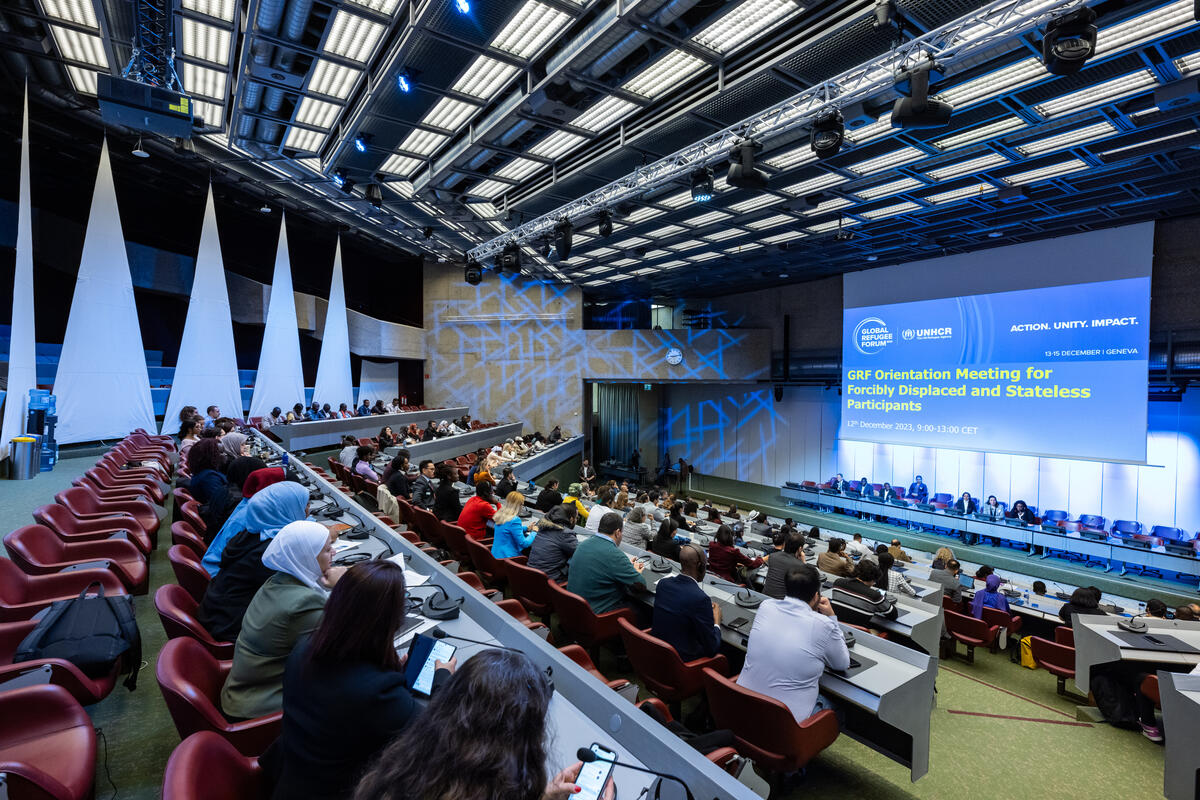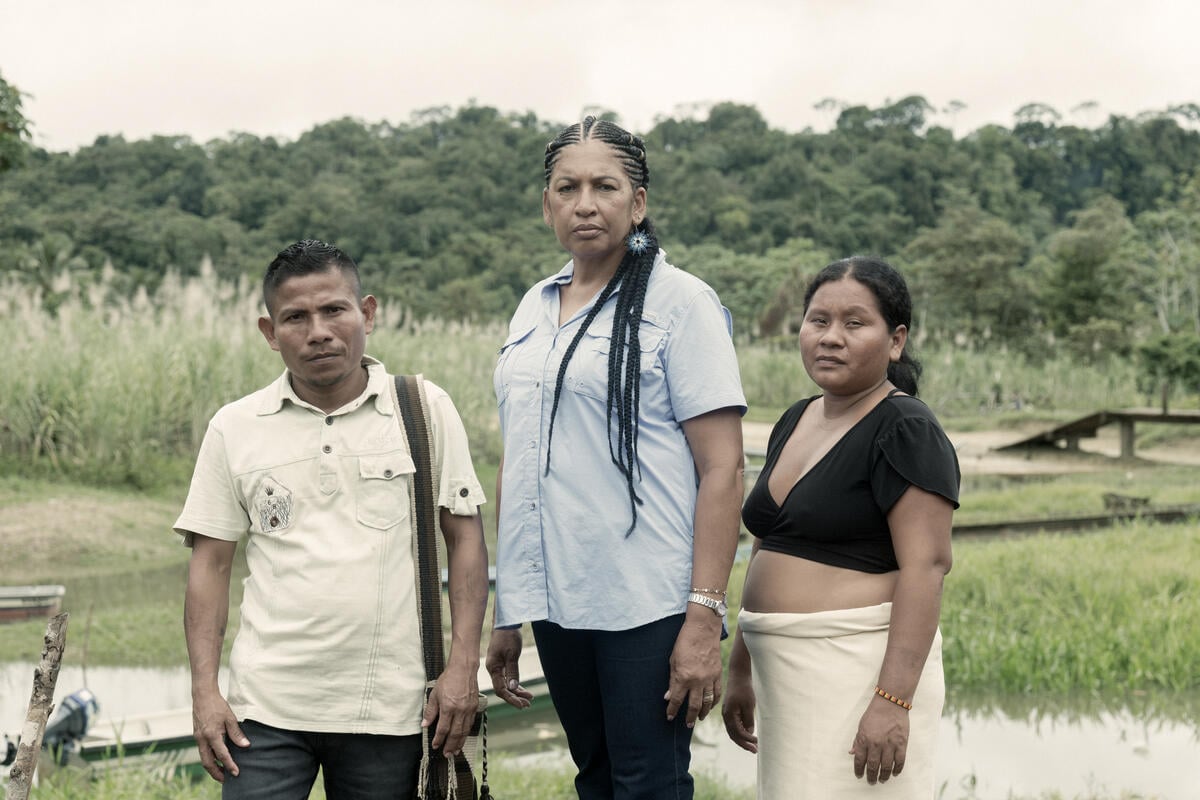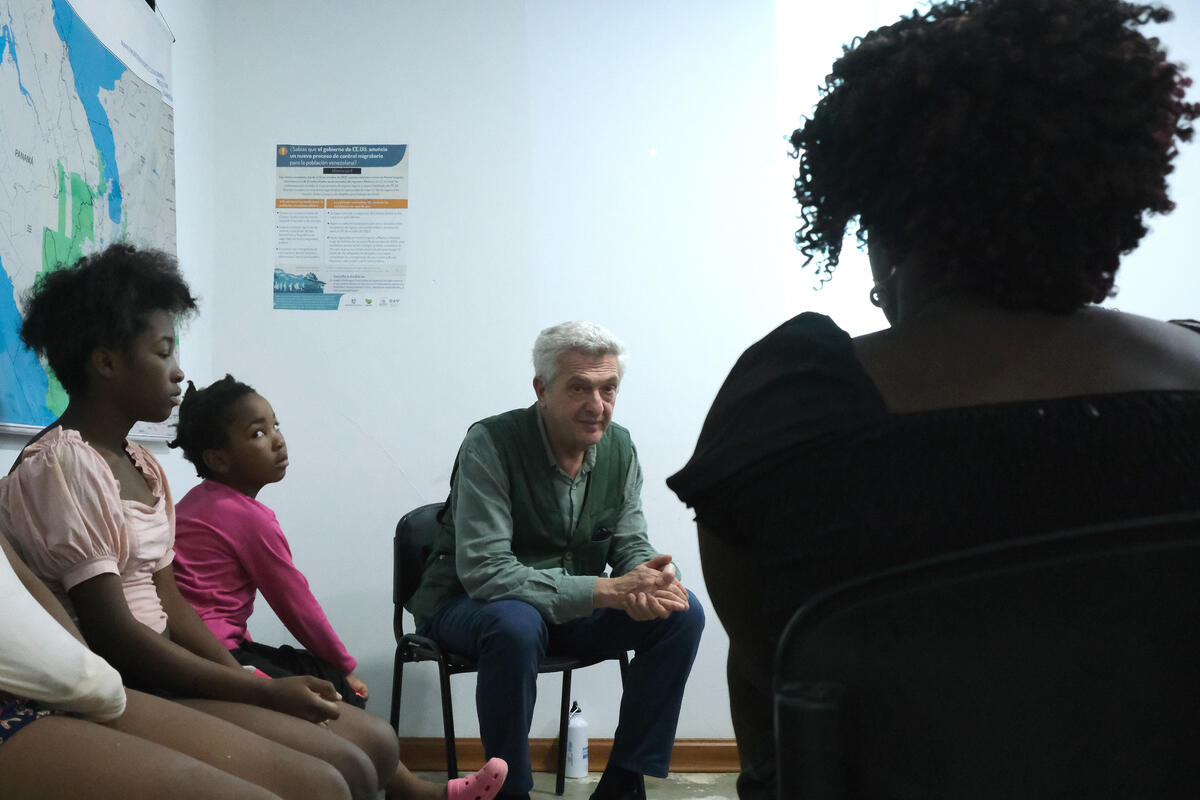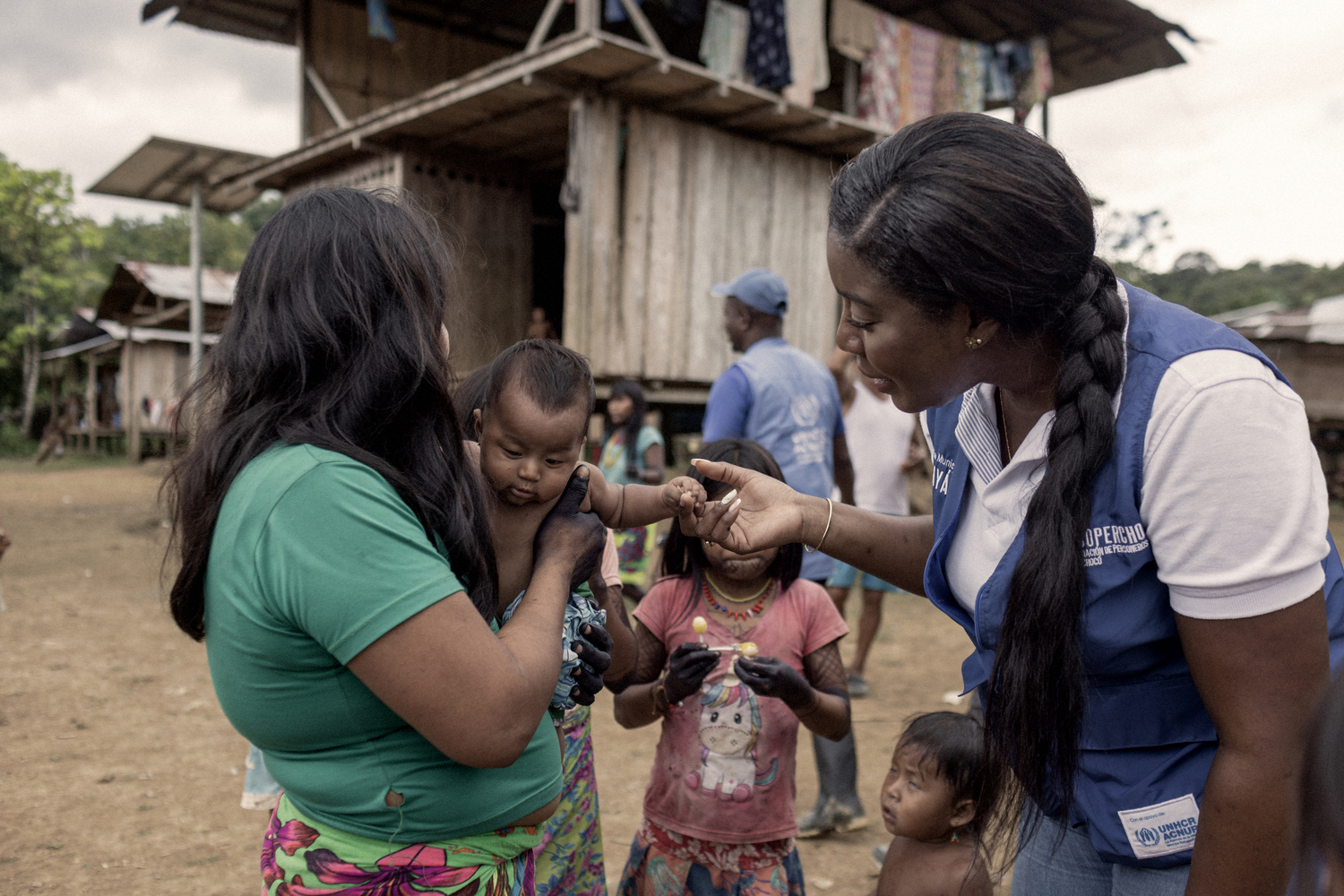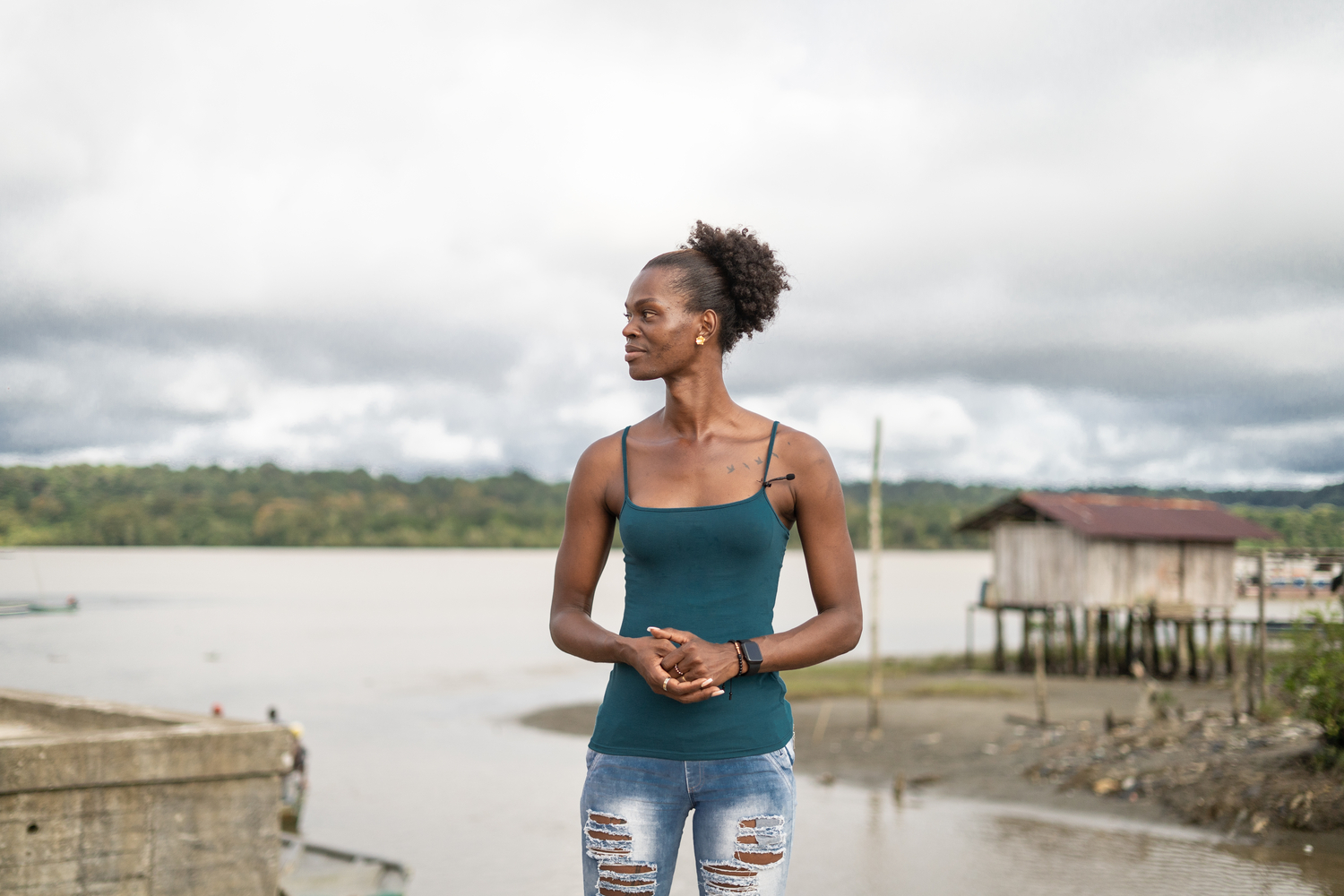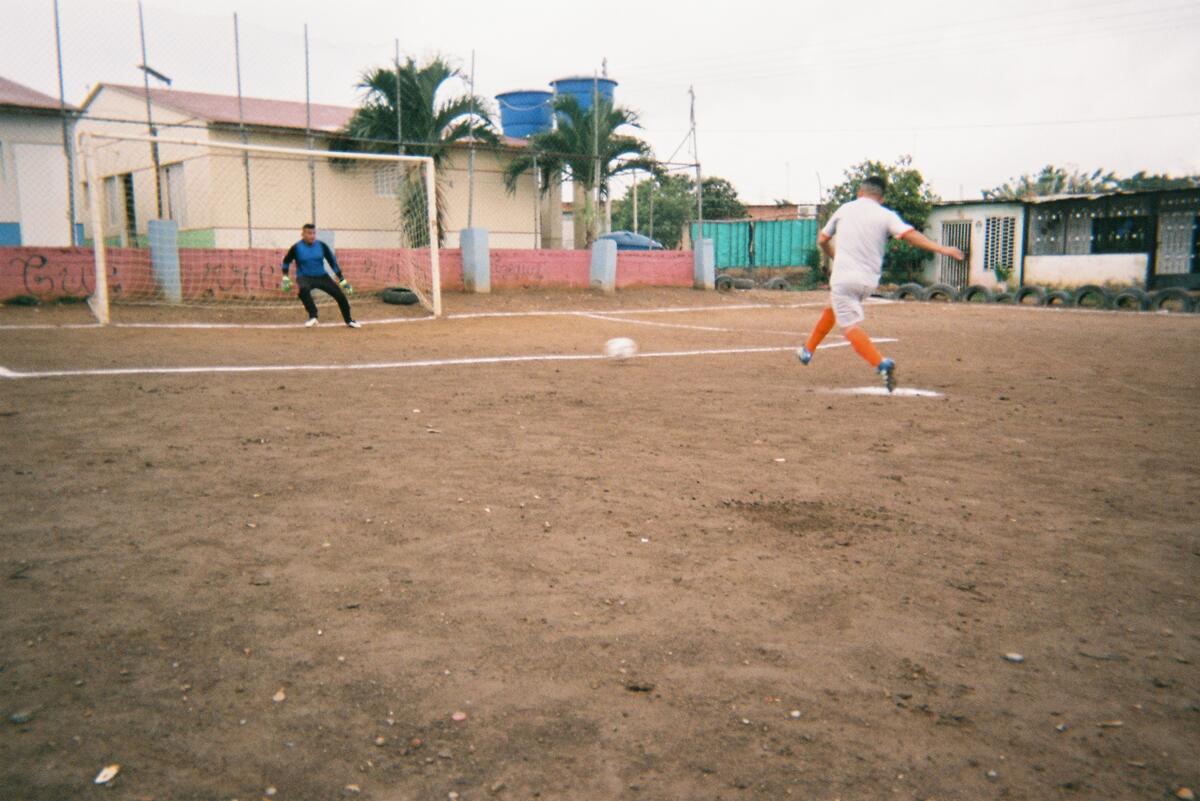Colombia: UNHCR expands IDP programme
Colombia: UNHCR expands IDP programme
In Colombia, UNHCR is responding to the serious humanitarian challenges facing internally displaced people, IDPs, in the slums near the capital of Bogota but at the same time we remain very concerned about the situation in Chocó province where indigenous communities are suffering from clashes between armed groups and an ongoing blockade.
Starting this week, UNHCR is establishing a regular presence in the Altos de Cazucá, south of Bogota, one of the main concentrations of internally displaced people in the Colombian capital where an estimated 25,000-30,000 IDPs are sheltering. The IDPs asked for a more regular international presence, which they say will help them feel safer in this area which is plagued by murders and human rights abuses, and where irregular armed groups have been accused of conducting a campaign of terror and intimidation against the local population.
The presence will allow UNHCR to better respond to the protection needs of the IDPs and to expand our existing work in Altos de Cazucá. Some of our projects in the area include documentation campaigns that have delivered some 3,000 ID documents to the displaced people, training local teachers to better meet the needs of displaced children, and joint UNHCR-National University legal aid centres to help IDPs exercise their rights. In Soachá, the municipality of Altos de Cazucá, UNHCR has started to assist the Mayor and the Red de Solidaridad Social (Social Solidarity Network) by training officials from the City's Assistance and Orientation Unit for Displaced Population on subjects such as human rights and micro-credit schemes. UNHCR is also participating in establishing an IDP information centre organized by the Soachá mayor's office in Altos de Cazucá.
Other United Nations agencies (UNICEF, OCHA, UNDP and WFP) have expressed their interest in joining UNHCR in Altos de Cazucá. If they do join in, it would be the first time in Colombia that most of the UN agencies in the country would share a common space at the field level in order to face jointly the humanitarian challenges.
Bogota continues to be the main destination of the internally displaced persons fleeing violence in the countryside, with government registration figures for IDPs at some 86,000 while NGOs estimate the total number of IDPs in the capital is close to 210,000. The poor neighbourhoods of Ciudad Bolivar and Altos de Cazucá are home to most of the IDPs. In the past, UNHCR and other organisations have expressed concern at the grave human rights situation in these areas.
Meanwhile, in the western Colombian province of Chocó, the situation continues to be a source of concern. Last week, a UNHCR mission to Andagoya, in the Middle San Juan River area, heard that on Wednesday 24 November, heavy clashes between FARC guerrillas and paramilitaries in the locality of Bebedó, left at least 12 people dead, including a 7-year-old girl and three other civilians. Thirteen people were also wounded. As a result of the clashes, the majority of the approximately 800 inhabitants of Bebedó tried to flee but most of them were prevented from doing so by one of the irregular armed groups. Some 127 people managed to flee to the nearby towns of Andagoya and Istmina, where they have been temporarily housed in the cultural centre or with local families. The Colombian army has now returned to Bebedó but the blockade imposed by the armed groups is still in force. A UNHCR team was sent to Bebedó yesterday, Thursday 2 December, to assess the situation.
In the Bojayá area, also in Chocó, the situation continues to be critical, with indigenous communities still blockaded by irregular armed groups. There are worries that with the onset of the dry season in December-January, new clashes between armed groups will ensue. Next week UNHCR is scheduled to lead a joint intervention with IOM, WFP and the Colombian Government Social Solidarity Network to build community centres in several returnee communities in the Bojayá area. These centres can also be used as emergency accommodation in case of influxes of IDPs.
In an unrelated incident, last Monday, 29 November, a fragmentation grenade exploded at about 50 metres from the UNHCR Office in Quibdó, the provincial capital of Chocó. No group has claimed responsibility for the attack, which left at least three people dead and six injured. No UNHCR staff were injured and our office was not damaged by the blast.

